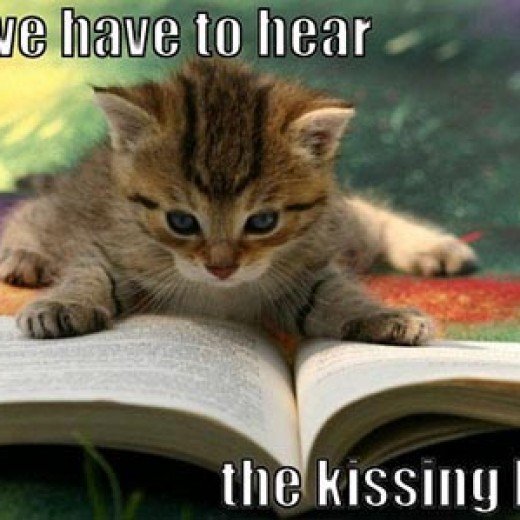7 Steps to Overcoming a Bad Book Review
 The nightmare among authors is to get a bad review. One star reviews can be horrible. Especially the seemingly well-written and intelligent bad reviews – “seemingly” because the information is false or misleading – that kill sales. But if you just follow these seven steps, you can overcome some bad reviews.
The nightmare among authors is to get a bad review. One star reviews can be horrible. Especially the seemingly well-written and intelligent bad reviews – “seemingly” because the information is false or misleading – that kill sales. But if you just follow these seven steps, you can overcome some bad reviews.
But first, a rant.
Lately I’ve been getting several bad reviews for my thriller The Torah Codes, a Jewish version of Dan Brown’s The Da Vinci Code. And it’s odd because my book used to always get four and five-star reviews.
Here’s an example of some of the reviews I received.
“The writing is stilted, the characterization lacking, and the plot predictable while still being improbable.”
“The characters are so cliched and unbelievable that you will soon find you are only reading to find out how it all ends.”
“The characters are ridiculous and without any resemblance to real people. The plot is ludicrous from beginning to end, in too many ways to even list. Suspense? How can you care after the first hundred pages of this never-ending chase?”
Oh, wait. Those above are actual bad reviews for The Da Vinci Code. Here are the bad reviews for my book:
“The plot makes no sense, the characters motivations are contrived, and the jokes fall flat.”
“I found it to be extremely boring and probably won’t read it again.”
“One of the most boring, predictable, useless books ever written. The plot had no vital juices. The characters were devoid of all emotion and energy. Even more devastating to the book is how it all ended.”
Oh, wait. Those are actual bad reviews for Shakespeare’s Hamlet.
Which leads me to step one of what to do when getting a bad review.
1. Look at the bad reviews of your favorite books
Go to your favorite book and read the one-star reviews there. This priceless advice was given to me by Katheryn Lane, author of Her Latin Lover, a Contemporary Romance (all her reviews are 4 and 5-star reviews except for one flatulant 1-star review). Here are my book’s actual bad reviews:
“I cannot agree with the good reviews, it was simply woeful. It was badly written with a terrible story.”
“I kept turning pages and trying to find a reason for some of the plot…it is so thin and so little character development.”
See the resemblance? Great. I’m as good as Dan Brown and Shakespeare.
2. Scoff at the review with your friends
One reviewer of my book said:
“Speaking of weird and bizarre, that ridiculous creature called Sophia, yuck. I really didn’t like that character at all. She was acting like she was demonically possessed but the characters in the story were acting like they didn’t notice this. [Author’s Note: Sophia is an epileptic and after having a seizure she is rushed to the hospital.] Nathan’s acts of ‘goodness’ have no mention of being motivated by God and yet scripture plainly tells us that; Only God is truly good. But when you belong to God, His goodness permeates through those who love Him. Nathan definitely did not have any love for God within him, so what motivated his acts of charity?”
Clearly, I offended her religious beliefs.
Though I have no intention of offending people, I am thankful that the bad review did not stem from the quality of my writing. In fact, the ability to upset a reader should actually be a compliment for writers. The worst review for a writer is hearing that the book was boring and full of typos.
3. Ask your friends to vote it unhelpful
On Amazon, you can ask your friends to vote a bad review on Amazon as being unhelpful so that it appears lower in the filter of most helpful reviews. This is not the best thing to do — I don’t think it changes much for the experience for the browsing reader — but I throw this step out there as an option. Feel free to practice on the one-star reviews listed here: http://amzn.to/TheTorahCodes.
4. Ask more people to review your book
By getting more friends, family, and people who won’t be offended by your writing to give you great reviews, the ratio of five-star reviews to one-star reviews is greater and browsing readers will respect that. It’s especially good to have reviewers who have a large online presence to review your book because their review, if posted on their blog as well as on Amazon, can promote more book sales for you.
I’m currently working on getting more reviewers to review my book.
5. Check in with your writing
This is the most important part. After you have bitched about and scoffed at the readers who left a bad review, after you have taken care of yourself and your ego, come to the review wearing an analytical hat.
What did they say that could help you improve your writing? What helpful feedback did they give?
If there are minor things you can fix that will make your story much better, consider fixing them. Then resubmit the book to your print-on-demand company like CreateSpace or Lightning Source, and/or resubmit the file as a second edition of your ebook.
It’s always good to improve your writing.
But if the bad reviewers didn’t give any helpful feedback, they can go f*ck themselves.
6. Don’t contact the reviewer
Whatever you do, don’t contact the reviewer. It’s tempting as hell to want to explain yourself. Don’t do it.
I consider myself a very tactful person when it comes to writing. I know better than to say, “You must be a robot because you clearly didn’t get the emotion Nathan felt when he got the phone call, you schmuck.”
Even saying this is bad: “I think you misunderstood what I meant in my story. What the characters think happened isn’t what really happened.” Now you’re accusing the reader of not knowing how to read.
I once sent this out to a reader who gave me two stars: “Thank you for rating my book! How do you suggest I improve my writing? I value your feedback!” I never got a response. It was wrong of me to try. Some people enjoy thrillers, others don’t. More often than not, the bad reviews will be a result of personal taste and not based off of the craft of your writing.
The biggest problem with contacting the reviewer to explain yourself is that the correspondence can quickly escalate into a fight that can be made public and hurt you even more.
So whatever you do, don’t contact the reviewer.
7. Contact the reviewer
This is actually a great suggestion by Alicia Dunams who works with helping business entrepreneurs create a book for promoting their business. She works with non-fiction authors.
What she suggests is to contact the reviewer, apologize that they had a bad experience with the book, and offer to refund their money. And, if they’re willing, they can remove the review if they want.
I think this definitely works great for business books where the buyer spends money to learn something. If they didn’t get the promised educational experience, it was a waste of money.
In the case of fiction, however, it may work differently. Some thriller readers will like my book, some won’t. Some religious people will be offended by my book and some won’t. I can understand offering to refund a reader’s money for being bored by a novel. There are no feelings attached. The book was boring, they didn’t get their money’s worth.
I’m not so sure about offering a refund to people who are offended by my book. If they already hate what my book stands for, making any further contact with them might only fuel their fire. I can just picture it now. In a revised bad review, the reviewer adds, “the author just tried to bribe me to take down my review. He is clearly the son of Satan.”
So here’s the best way to contact a reviewer. First, plan to contact only the ones that have smart, well-written, level-headed reviews explaining the flaws (typos and craft issues) in your novel. Second, fix those flaws and upload the fixed version to your distributor and book sellers. Third, contact the reviewers to thank them for pointing out the flaws in your book, offer a refund, and explain how you fixed the flaws and can send them a revised copy of the book.
Otherwise, don’t contact the reviewers.
So if you get a bad review, don’t worry. It means you’ve just joined the likes of Lee Child, Norma Roberts, Stephen King, Ernest Hemingway, Jane Austin, and Shakespeare.
***
 Book marketing mentor, Ezra Barany is the author of the award-winning bestseller, The Torah Codes. Contact Ezra now to begin the conversation on how he can help you. You can connect with Ezra via Facebook, Twitter, contact him through this blog, or by email: EZRA at THETORAHCODES dot COM.
Book marketing mentor, Ezra Barany is the author of the award-winning bestseller, The Torah Codes. Contact Ezra now to begin the conversation on how he can help you. You can connect with Ezra via Facebook, Twitter, contact him through this blog, or by email: EZRA at THETORAHCODES dot COM.







Ezra. Good article.
If you meet the critic face to face chances are you’d chat and become friends (my experience). Keep your cool.
And good luck with the book.
I have a serious problem with some of your advice.
Ask your friends to vote a bad review as being unhelpful? You know that doing this makes you look bad, right? You know that everyone will assume you gathered your army to attack the review and the reviewer (some reviewers take pride in their helpful review percentage), right? Why suggest that and then tell people it’s not a good idea?
Get your friends and family to write reviews? Those would be considered shills. Authors who use shills lose readers’ respect, and for good reason.
Contact the reviewer and offer a refund? WHAT? Sarcasm won’t win you new fans. Name one PROFESSIONAL author who does this. If you consider yourself a professional, don’t do it. Don’t suggest that others do it, either.
“So whatever you do, don’t contact the reviewer.” Why didn’t you just leave it at that? That’s the most professional way to respond to bad reviews.
Some of your suggestions are great (compare your reviews to those of your favorite books or famous books, ignore the review, rant to your friends OFFLINE and not in public, check your writing). With the others, you’re leading people down the path toward the kind of misbehavior that makes indie authors a joke among readers.
Excellent comment from Karen M.
Every (legitimate) book has (legitimate) bad reviews. EVERY book. Every real best-seller has them. Every real award-winner has them. EVERY ONE.
Repeat this phrase in front of the bathroom mirror every time you’re tempted to down-vote, respond, or attempt to drown a bad review with “friendly fire”. I’ve found it also helps to read the disparaging review aloud in either A)Yosemite Sam voice; B)Marvin the Martian voice; or C)the “British House-wife” voice from Monty Python.
Having satiated your inner Python, move on. If your work is worthy, the positive reviews will outweigh the negative. Good luck!
Hi, Ezra, I know you from Facebook and as you will see, I’ve ranted about a few points earlier already.
I, too, don’t think it’s appropriate to have friends down vote those reviews or get them to write you fake 5-star reviews.
To be even more frank: if an author (not you in particular) receives more than a few negative reviews, pointing out flaws in characters and story line (being flat, unbelievable, etc.) the author is better advised to reflect on them and rather work on the ms than getting worked up over reviews.
And yes, everyone gets them, that’s part of the job description. 🙂
Karen,
After reading your response, I called out to my beautiful wife, “Hey! I hit a nerve!”
Her response was “It’s about time!”
You’re absolutely right. There were serious problems with my advice. So here’s a revised list of 7 steps:
1. Look at the bad reviews of your favorite books.
2. Scoff at the review with your friends (offline, as you suggest, Karen).
3. Hover your mouse over the button that labels the review as being unhelpful, then don’t click. If a flurry of votes marking a review as unhelpful comes is, browsing readers will see right through it. Especially if the review is level-headed and not a personal rant against the author. Let the natural process of people giving their opinions come in and don’t interfere. If the writing is good, the wave of good reviews will win out. Every time.
4. Ask more well-respected reviewers to review your book. I was wrong to suggest that family and friends should flood your sales page with five-star reviews. In my original draft I wrote that you should ask reviewers who have clout in the book world to review your book. The idea being that — if they’re professional — they won’t judge your book personally and won’t let any offensive response they may have interfere with their judgement on the quality of the writing. I’m not sure why I changed this step to include family and friends. I think mostly because my friends and family judge my writing more harshly than strangers, so I usually get honest feedback from them instead of biased reviews.
So get more honest reviews for your book to outweigh the ones that are personal attacks against you and your story.
5. Check in with your writing. The bad review may have something helpful to say.
6. Don’t contact the reviewer.
7. Contact the reviewer. Again, on rare occasions I believe it’s okay to contact the reviewer. For example, before I launched my ebook version of The Torah Codes, I had someone review my book on their Nook. She preferred an ePub file, so I made a quick, rough conversion of my book into an ePub file since I didn’t have the finalized ePub file completed yet. She gave my book a five-star review and said the only thing she didn’t like was how the POV switched back and forth without warning. Apparently, her e-reader mushed all the scene breaks together so it came as no surprise to me that she was confused. The man we hired to convert the file to ePub had finalized the file by replacing all the scene breaks with asterisks. As soon as my ebook was on sale, there was never a problem with sudden POV switches. The scene breaks were clear.
I think it would be fine for me to contact her, thank her, and send her the current ePub file to show that the ebook was fixed to avoid any POV confusion. Then, if she wants, she can edit her review and avoid having people publicly tell her she’s wrong.
I chose not to contact her, however, because as far as I’m concerned, her review has not damaged my sales.
Thanks for your feedback, Karen!
Thanks Ia,
I often wish to meet the authors of the bad reviews to chat with them and befriend them. Though I rarely take criticism of my writing personally, it bothers me when I offend people. So any opportunity to apologize for offending their beliefs and feelings is welcome.
But I refuse to keep my cool if I’m in Greenland. If I’m in Greenland, you can expect to see me with a heater.
Nice mantra, Chris.
And excellent idea of reciting the review with different voices. I’ll add Christopher Walken’s voice to that list.
P.S. Whenever I see the word “mantra,” I think of the praying mantis.
Not sure why.
Ezra, you rock! Best of luck to you.
I looked at your reviews and did as suggested except for one which I left untouched. The reader lamented it was not what expected so it taught them a lesson in reading the blurbs – well, I would say that is pretty good education.
Good article – now you’re on my tbr.